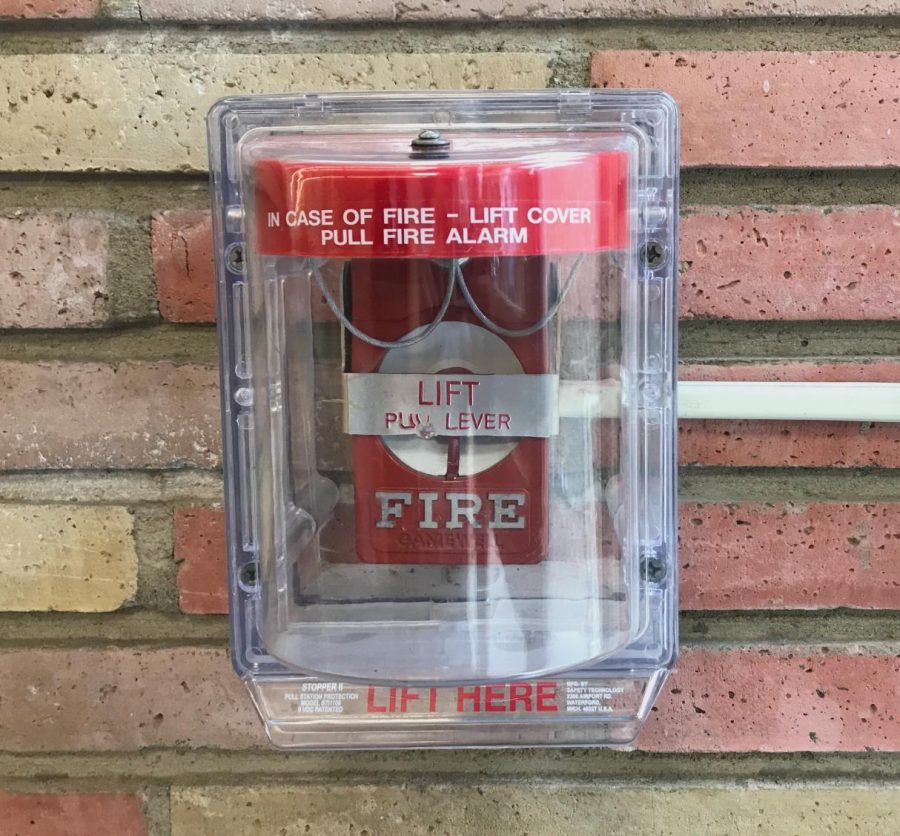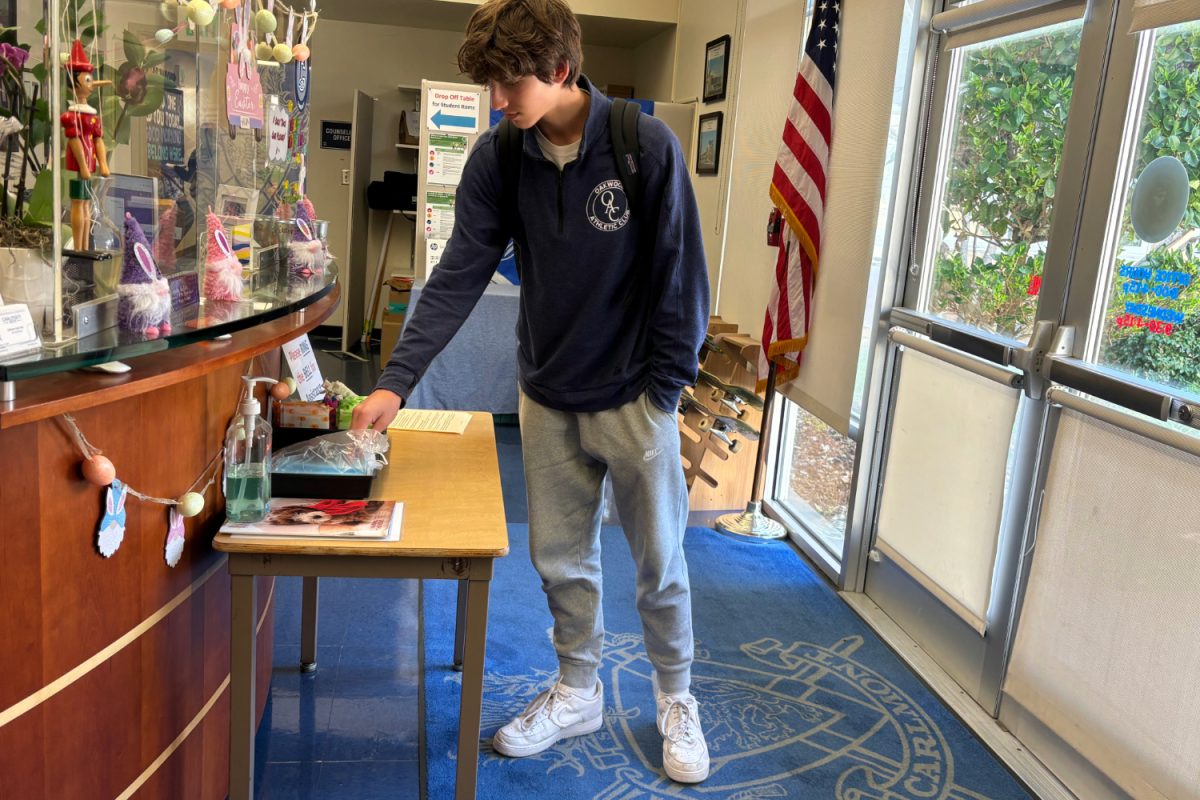Early Monday morning on Feb. 24, just back from mid-winter break, the fire alarms went off at 8:30 a.m. And then again one minute later. And again… seven more times.
An announcement followed soon after, directing students and staff to remain in their classes.
According to Gregg Patner and Grant Steunenberg, the administrative vice-principals, Monday’s alarms went off due to an overheated panel in the Scots gym. Part of the plastic on the wiring melted, causing smoke to set off the fire alarm. Eventually, the fire department came out to assess the situation, but no fire was found.
This alarm is one of many in the past school years, but despite popular belief, the ‘false’ alarms are not typically caused by someone tampering with them.
“Fire alarms will signal for a variety of reasons. They’ll signal for fire. They may signal for aerosol being sprayed in the area. They may signal if somebody is tampering with it. They may signal because somebody pulled it or they may signal because some wiring has been worked upon and it short circuits, tips it, and goes off,” Patner said.
It’s common among students to think that because the whole school didn’t have to go out to the field, as would happen in a real fire, someone was probably just messing with the alarms. Patner accounts for the actions taken to determine the cause of a fire alarm.
“Our job when the alarm goes off is to assess whether or not it is a true fire, and then to determine what our steps are to make sure everybody’s safe,” Patner said. “So when a fire alarm sounds, we immediately get deployed out to that area. We have a panel in the office that tells us where it is[…]and our secretaries will call ahead to see if somebody is in the room to find out if there is a visible fire. We then attempt to get that information to the staff so that everybody knows either to evacuate or to stay put.”
Another variable that the administration has to take into account is their efficient communication with the fire department.
“It’s an immediate communication to the fire departments, so that’s why it’s important for us to determine if it’s a false alarm,” Patner said. “If it’s legitimate, then we let the fire [department] along with the police come out and support us. We have to immediately notify them if it’s illegitimate because every time they do come out, it costs us money.”
When the alarm sounds, teachers are instructed to be on standby until further announcements are made by intercom.
“We don’t want to evacuate the entire school every time the alarm goes off,” Steunenberg said. “We want to make sure it’s not a true emergency, so, yes, teachers should be on standby. On Monday, as the alarm continued to go off, teachers did the right thing. A lot of the classes started to reluctantly come out into the halls.”
However, while all protocols for fire alarms are being followed, it still leaves many teachers and students in confusion.
“With the frequent number of alarms that go off, it can be confusing to know what to do. And with so many of them being false, it’s annoying because it disrupts the class,” said Kasey Parks, a sophomore.
While there are so many causes and actions to be cautious of during a fire alarm, according to Partner, there is one bottom line.
“I think it’s important that everyone knows that regardless of the fact that there are false alarms out there or alarms that don’t end up being acted upon[…], to always take them seriously,” Patner said.












